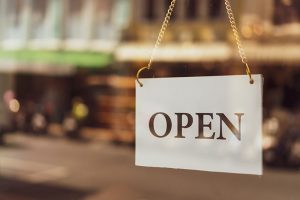The coronavirus pandemic sparked a nationwide lockdown in March 2020, which forced the Government to put a package of emergency measures to support public services, people, and businesses.
Those measures included the Bounce Back Loan Scheme (BBLS) and the Coronavirus Business Interruption Loan Scheme (CBILS).
According to Treasury figures, more than one-and-a-half million businesses have applied for the BBLS. And 1.36 million of those have been approved.
However, the Government’s spending watchdog, the National Audit Office (NAO), has revealed that up to 60 percent of those may never be repaid.
This could lead to taxpayers losing as much as £26 billion.
The NAO report also warned that the speed with which the scheme was rolled out heightened the fraud risk.
This is because it took a month to ensure businesses could not receive more than one loan.
New data shows £17 billion has been paid to over 73,000 businesses as part of the CBILS.
What is the bounce-back loan scheme?
The Bounce Back Loan Scheme (BBLS) enables smaller companies to access finance during the coronavirus pandemic quickly.
It helps small and medium-sized businesses to borrow between £2,000 and up to 25% of their turnover up to a maximum loan of £50,000.
The Government guarantees 100% of the loan, and there are no fees or interest to pay for the first year. However, after 12 months, the interest rate will be 2.5% per year.
The loan length is six years, but you can repay early without incurring a fee.
The BBLS officially closed at the end of November 2020.
What is the Coronavirus business interruption loan scheme?
The Coronavirus Business Interruption Loan Scheme (CBILS) provides financial support to smaller businesses affected by Covid-19.
It helps small- and medium-sized businesses access loans and other kinds of finance up to £5 million.
The Government guarantees 80% of the finance to the lender and pays interest and any fees for the first 12 months.
The CBILS officially closes at the end of November 2020.
What happens if your business can’t repay its CBILS or bounce back loan?
BBLS and CBILS loans under £250,000 do not require a personal guarantee.
However, some lenders are reported to have demanded personal guarantees from directors of up to 100% of a loan.
This could expose you to serious personal financial risk should your company fail to meet the repayments further down the line.
When you accept a personal guarantee for a business loan, your lender will expect you to repay all, or an agreed amount, of the remaining loan if your business defaults.
This could lead to them pursuing you through the courts for repayment, affecting your property and other assets.
It’s worth noting that there are instances where directors can be held personally liable for repayment of their business’s debts, even when they haven’t provided personal guarantees.
These include:
• Any instances of misfeasance (i.e., if you deliberately mishandle company funds).
• If you have made preferential payments. (E.g. If the loan was used to repay a single creditor or lender over others).
Note – You might also be interested in this post answering the question can you dissolve a limited company with a bounce-back loan?





